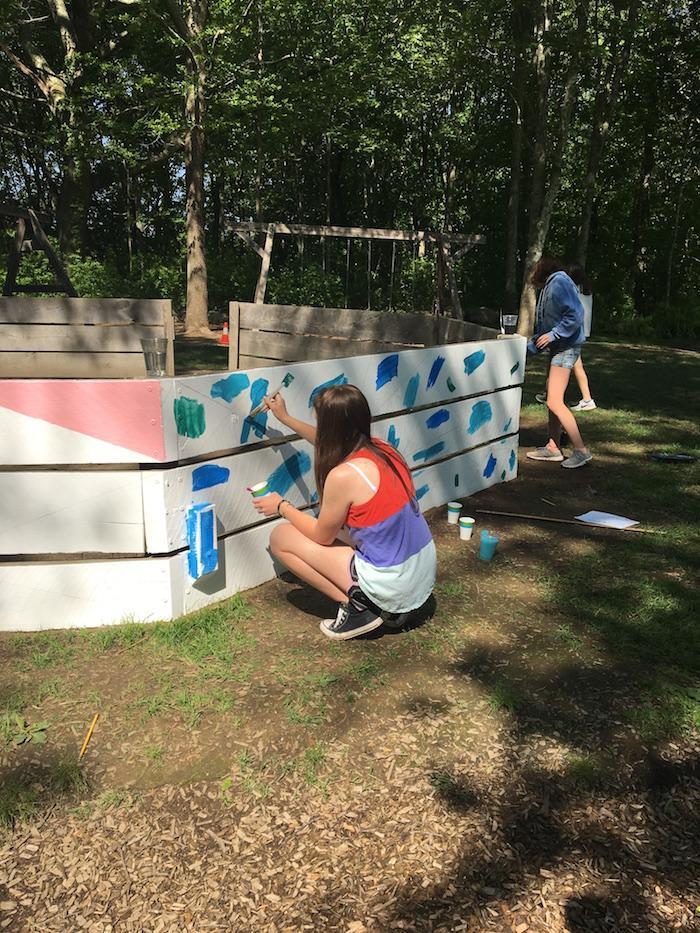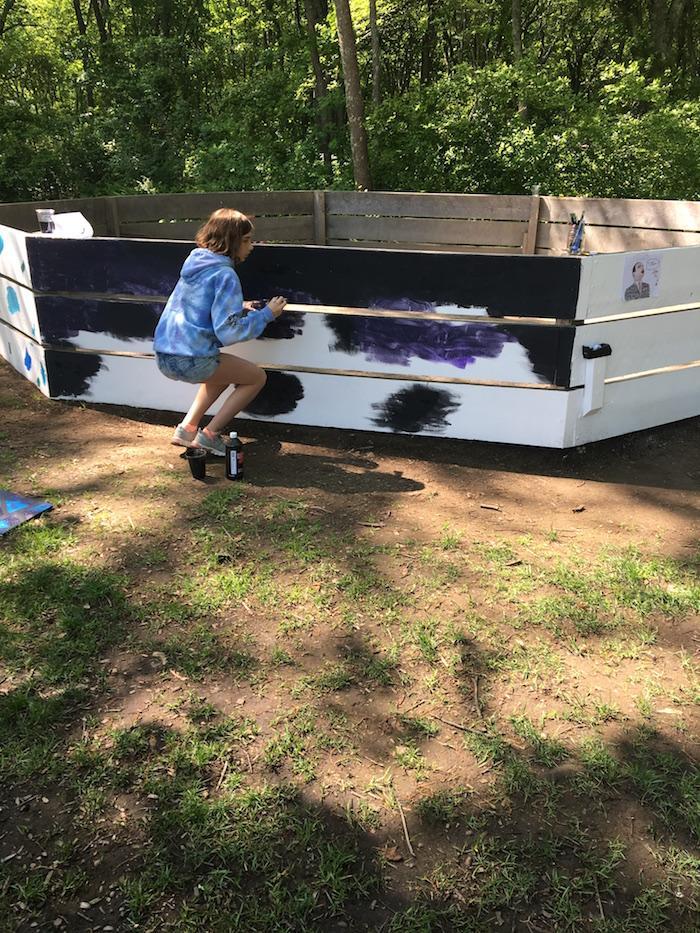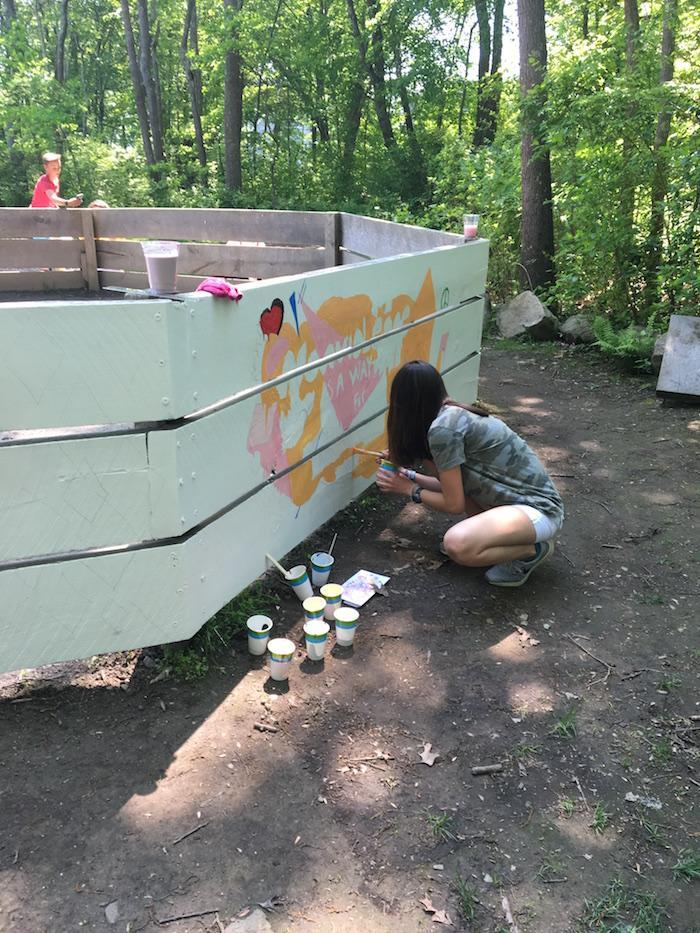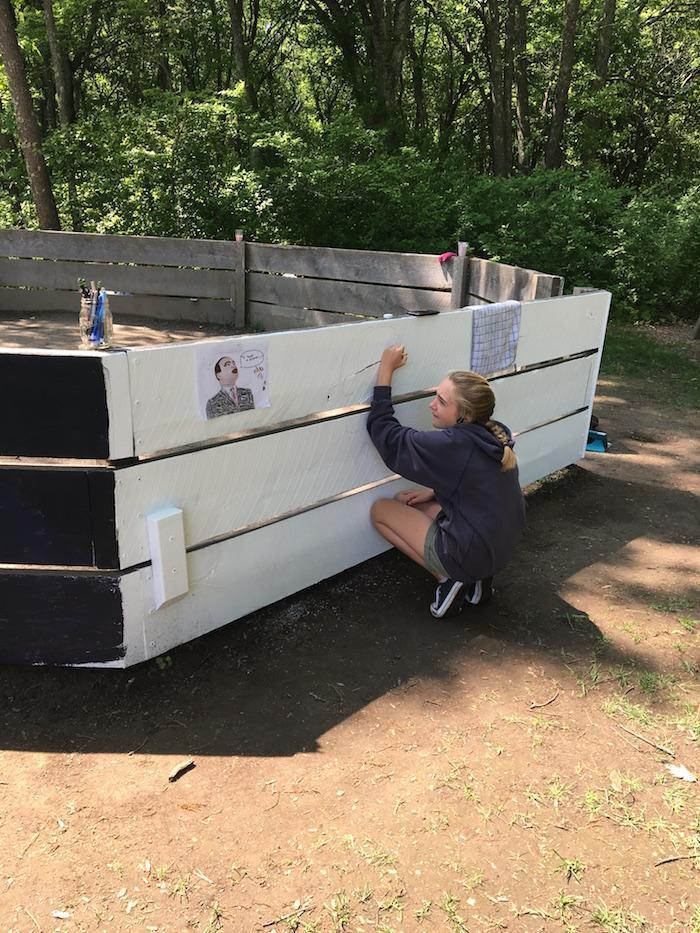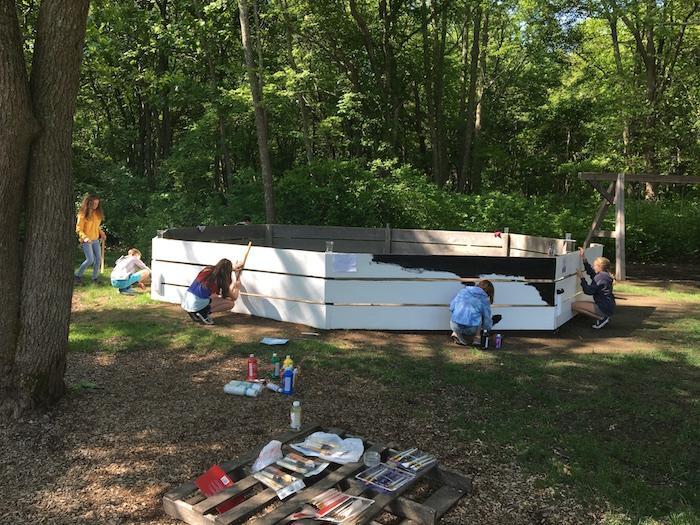
You may or may not already know, but Montessori schools discourage the introduction of fantasy to young children (children under the ages of 5 or 6). This means we do not use play kitchens, have a dress-up area in the classroom, or rely on books with dragons and fairies. Because of this, some people hold a misconception that Montessori education stifles imagination and creativity. This is unequivocally false. We wonder if this misconception stems from tangled definitions of fantasy and imagination, which are two very separate concepts. Fantasy is the stories and ideas drawn from a world which does not exist (those fairies, dragons, talking horses, etc.). Imagination is the ability to conjure images or scenarios in one’s own mind, separate from present sensorial input.
So, what is the difference, really?
Fantasy is giving wooden fruit to play with instead of a real banana to slice. Fantasy is reading a book about a talking dog rather than reading a book about the different breeds of dogs around the world.
Imagination is a child on the playground pretending they are an eagle because they saw a live one for the first time that weekend. Imagination is children playing ‘family’ because they are driven to practice the roles that are modeled for them in their own homes.
Imagination is inherent in the human mind. It’s where our creativity comes from, and it’s one of the ways we process learning about the amazing world around us. In a Montessori classroom, we revel in the magic of imagination (and, as children get a bit older, we use it to our advantage, but more on that later).
Fantasy can be very interesting to an older child (about 6 plus) but very confusing to the young child as they are not able to differentiate between reality and fantasy. Everything a young child encounters in their life is awe-inspiring and fills them with wonder. There is no need to tell stories about unicorns not only because the child often has a hard time distinguishing between whether they are real or not, but also because an actual horse is just as fantastic to them. When the whole world is still relatively brand-new, animals, plants, the environment, and real people provide more than enough inspiration for their young minds.
We all know that even very young children utilize their imaginations. This is a normal and natural part of development which we value and honor. In our environment we give students real, authentic opportunities as opposed to presenting them with pretend ones. We know that a three-year-old is fully capable of learning basic food preparation skills, so we guide them and leave them with a sense of empowerment. Even a toddler is old enough to begin learning how to sweep up a mess on the floor. Rather than supplying a toy cleaning set, we make available real cleaning tools that are appropriately sized, and we guide young children as they learn to use them effectively.
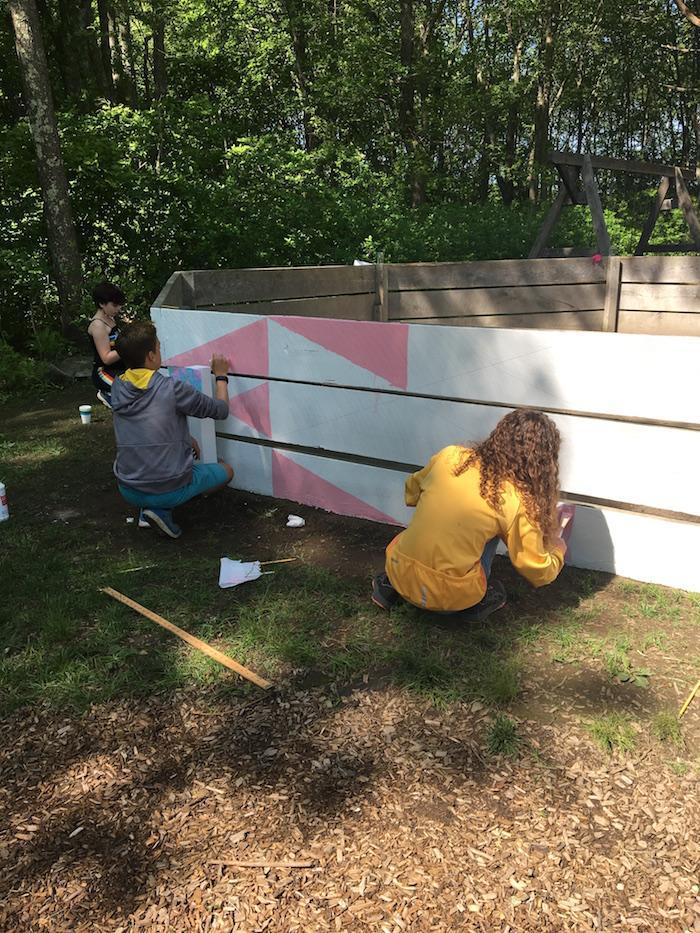
Once children reach elementary age (around 6) our approach shifts. Because children are more able to differentiate between reality and fantasy, we don’t discourage fantasy books (although we do provide plenty of nonfiction). We also know that children at this age, through about age 12, are highly motivated to learn through the use of their imaginations.
While we still do not rely on fantasy to drive our teaching, we do lean heavily on imagination for older children. Several of our most important, foundational lessons about the universe, life on Earth, and humanity itself are delivered with the use of storytelling. The stories we tell are true, but we allow children to mentally picture themselves in historically critical moments. Elementary-aged children are seeking to find their own place in the universe, and their developed sense of imagination helps take them there.
In many respects by encouraging the use of imagination over fantasy, we are enabling the child to stretch their own minds and not have their imagination limited by the pretend stories of others.


